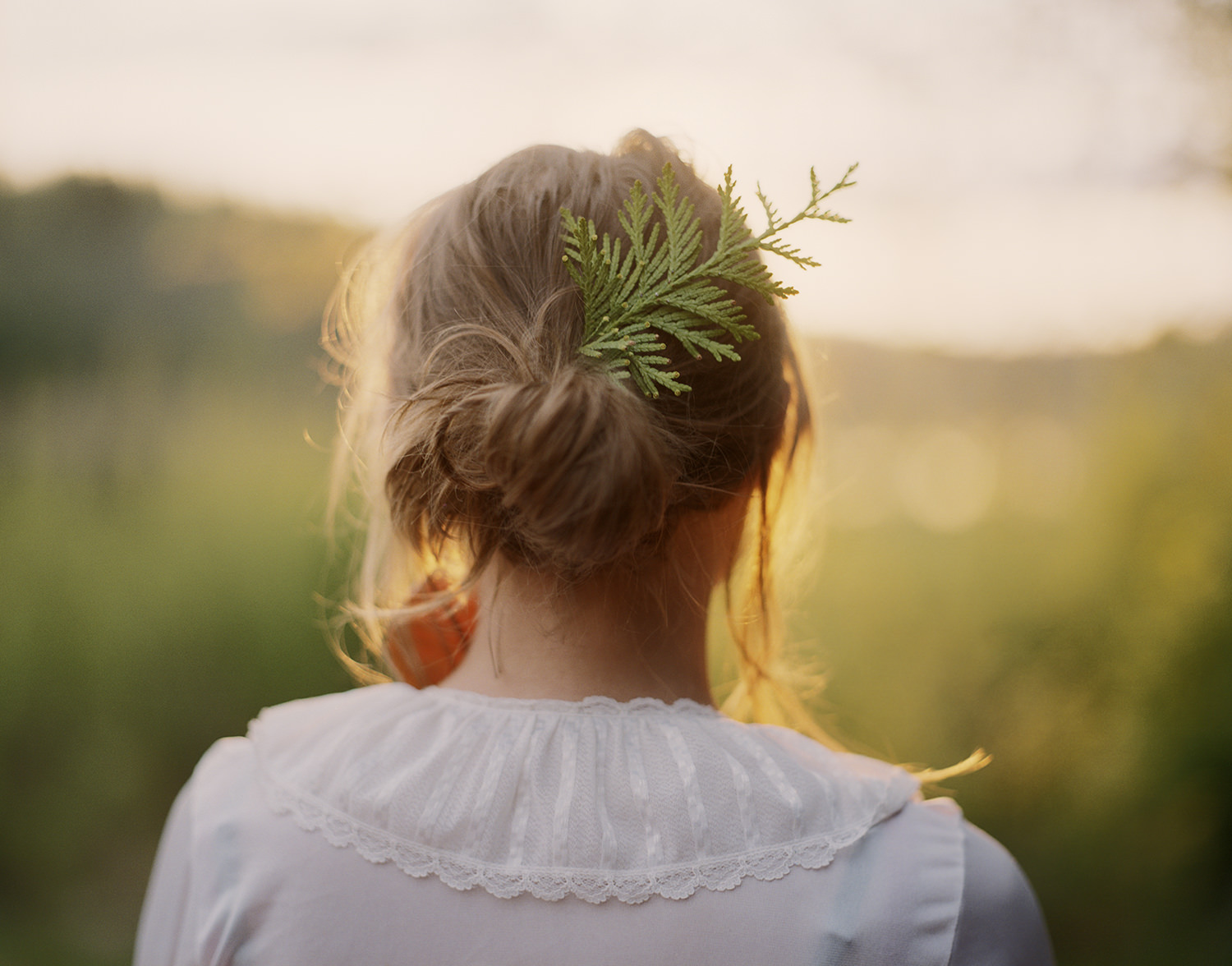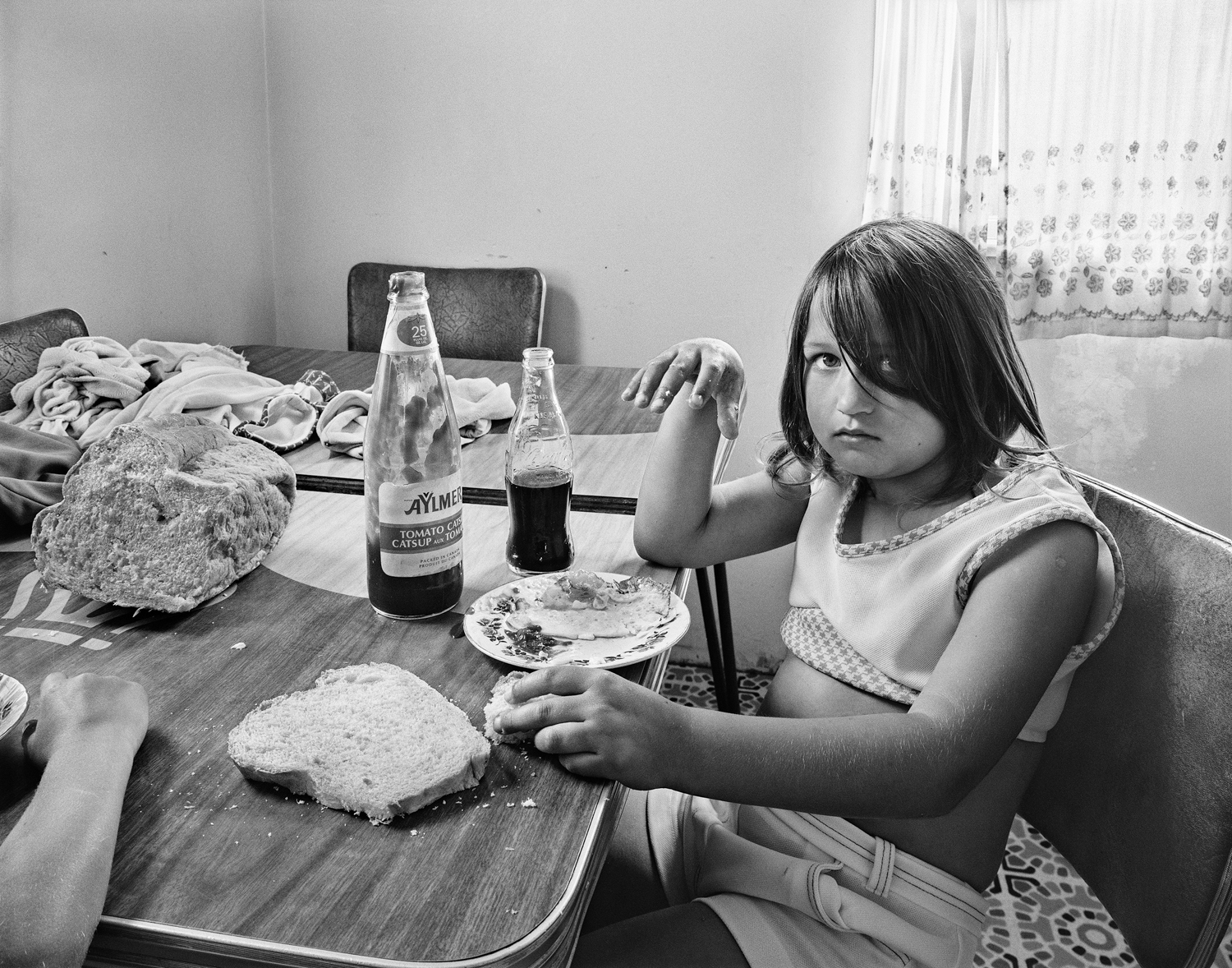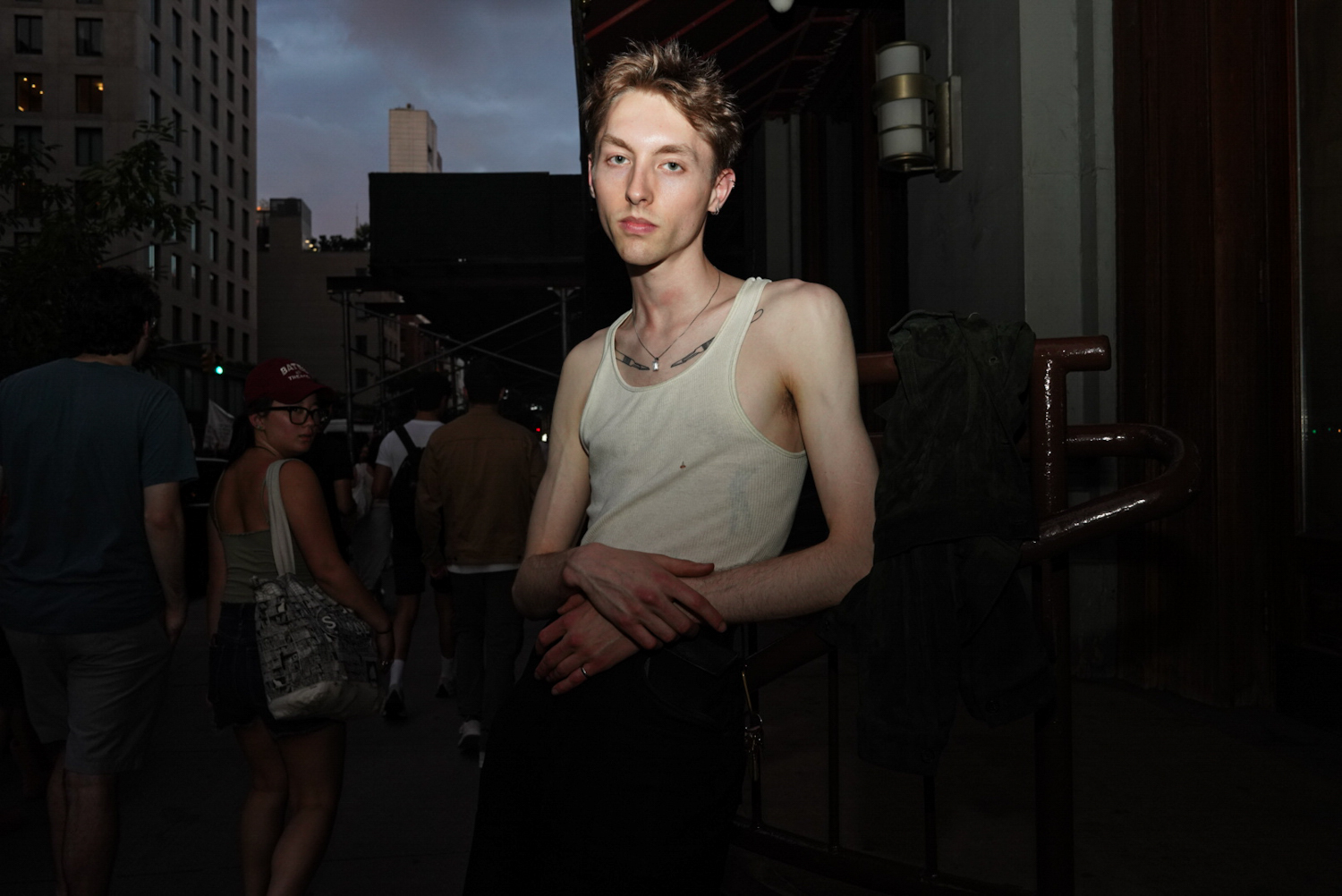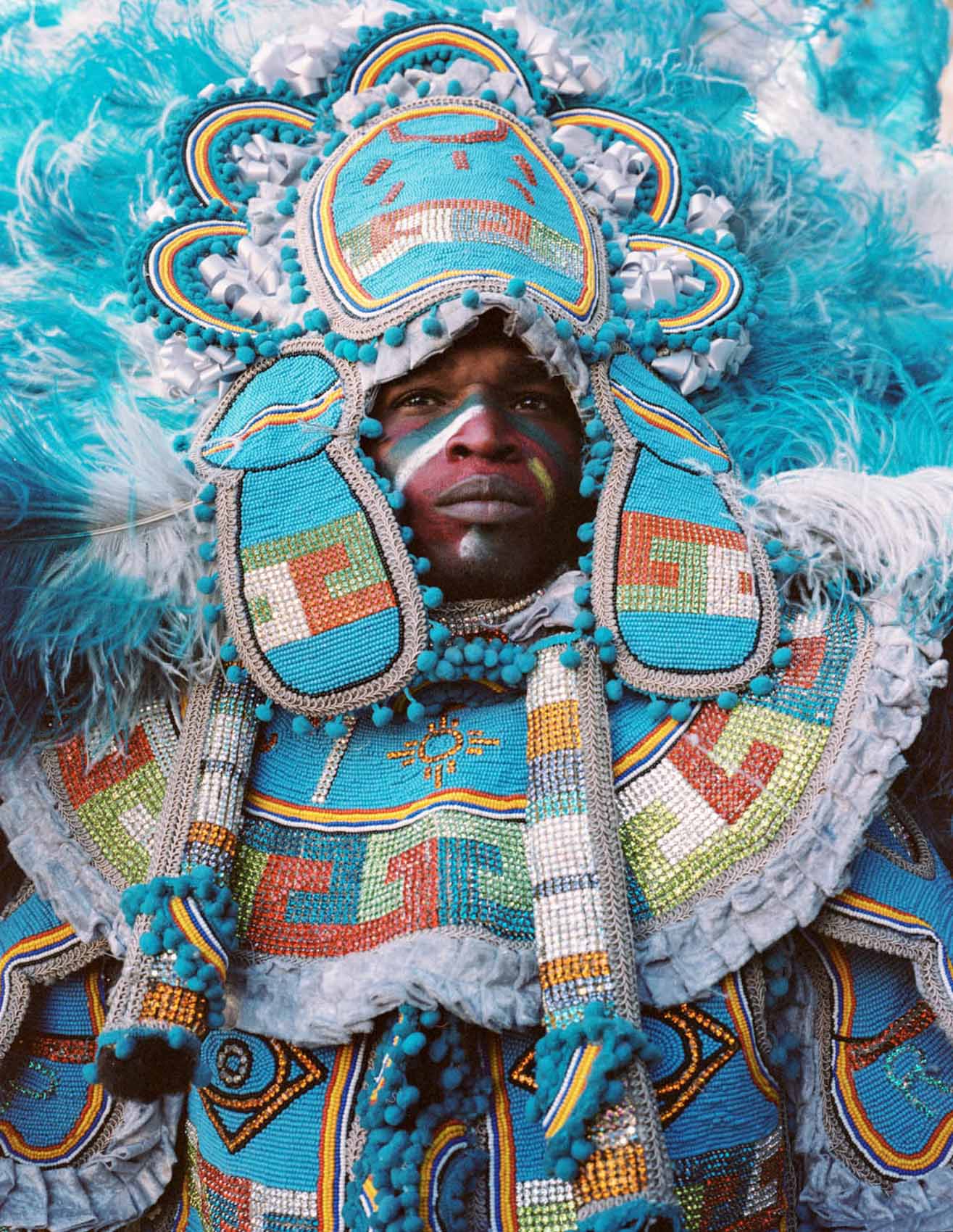
Can you explain what your project is about and what prompted you to work on the Vyatka region?
I started shooting Vyatka quite a long time ago. I worked as a photojournalist for several Newspapers in the early 90’s. Later in the 2000s, I just turned to my archive and decided to do something about my native land, where I was born, grew up, and found the meaning of life. Primarily, the series is about my sense of homeland and people who live there.


« You need to enter into an invisible connection with them, and the camera shutter will do its job. »
We feel you close to the people you photograph, we feel that you share the moment both through your camera and beyond. In some photos, we can feel the link that unites you to people and moments. Can you tell me more about your relationship with the people you take pictures of and your relationship with the Vyatka?
You correctly noted that I am quite close to people. There are many reasons for this. I believe that to make a good photo, you need to feel the situation and the person. You need to enter into an invisible connection with them, and the camera shutter will do its job. And of course, you must love your filming object, otherwise, your models will be soulless and detached. This can be compared to sculpturing when an artist makes something animate out of an inanimate piece of stone. I often communicate with people to get closer and feel their essence. But sometimes it’s important to be invisible in order to capture a unique moment.

« I look for harmony in simple things »
With the black and white, your series seems frozen in an ancient time, why did you do this work in monochrome?
Yes, you are right. Many of my photos don’t have a visual reference to time. It is a bit strange for a documentary photo. But this is the balance of my perception of reality. I look for harmony in simple things. Details of modernity often only upset this balance. But in my opinion, in any case, photography can show something more, and everyone can feel the time. The monochrome image provides food for our brain, and my choice is not random, because I started my journey with black and white photography and color does not limit me in the choice of subjects, which is very important.


You seem to shoot mostly with analog, what’s your link with film and your relationship to photography?
As I have already written, I started my photographic life with a black and white film. It was 1985 when I was still a Soviet schoolboy and became interested in photography. I was very inspired by the process of developing and printing photos. It is an amazing feeling when an image appears under the light of a red lantern. It is magic. At that time, Soviet stores sold the black-and-white film. It was produced by several factories, and it was accessible.
Later, when I worked at a newspaper, the whole process was analog. I had my own small laboratory, and I was experimenting a lot at that time. I tried a variety of developers and films. When digital technology came, I continued to shoot on film, because I immediately felt that nothing can replace traditional technology. Especially that I like to mess around with film. I also like the unpredictability of the result on film, it is always an element of mystery and magic.

There is a certain USSR-era melancholy in your work, is that the case?
I am not sure that this is melancholy, it is a certain basis on which my photographic vision was formed. When I was a teenager, and my passion for photography became stronger, I often flipped through the magazine « Soviet photo », I learned from the example of Soviet photographers. But at the same time, I was very interested in what artists do. I went to a library and collected a bunch of art albums. I was struck by the Impressionists and the themes they raised. I was particularly impressed with Edgar Degas and Matisse. At the time, I thought they were surprisingly photographic artists. And of course, all this baggage of what I’ve seen has influenced my photographic style.
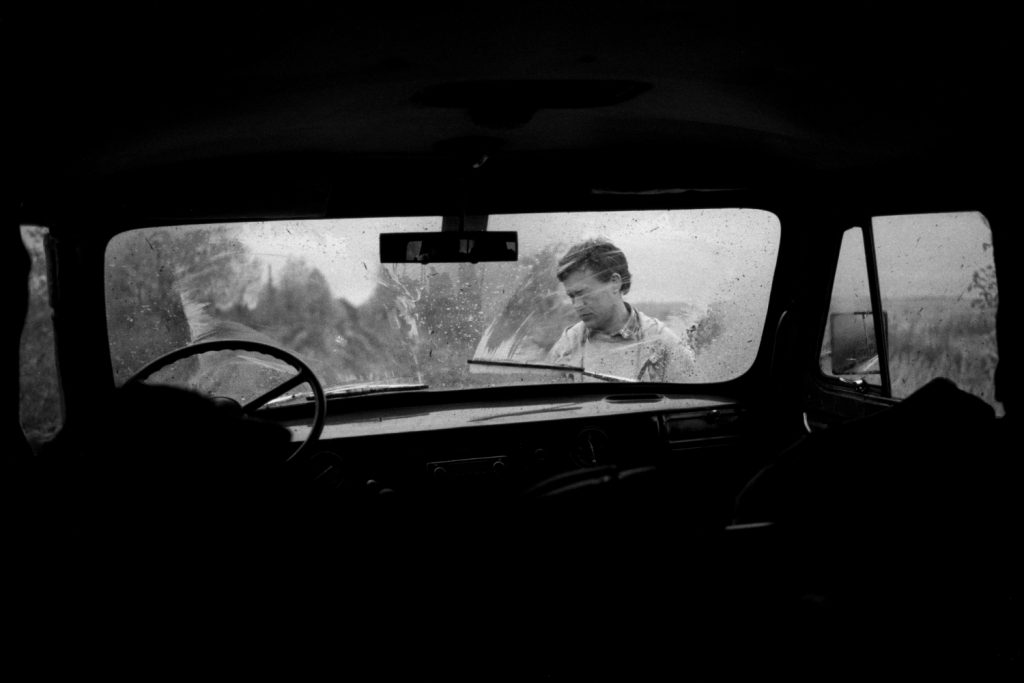

Can you explain more about your organization and process?
Generally, I don’t have a specific clear plan for the project that I will be working on. I give myself up to fate and luck. My intuition and feelings know more. I usually go to places that I find interesting. I photograph everything that inspires me. These are trips of two or three weeks. It is often all about improvisation in traveling. I never know what to expect.
I usually shoot 30-40 films per trip. Then a pleasant routine begins: developing films, scanning the best frames. Then the material is maintained by time. This is the longest process. Then I have an idea to combine the photos into a theme. And then the process can be delayed for many years, as it happened with the Vyatka history. In my opinion, if the material is worthy, it should pass the test of time. This can be compared to a good wine. Aged wine gets all the advantages over time.


How did you finance this project?
I finance most of the projects I work on. It’s hard, but I’m not discouraged, because I’m sure that if you did your job well, the money you spent will come back. But there are also projects funded by interested organizations. For example, in 2017, the organizers of the Nuits Photographiques de Pierrevert festival invited me to work for two weeks in a small village in the South of France in Provence. I agreed with pleasure and took wonderful photos. But this is more likely the exception than the rule.
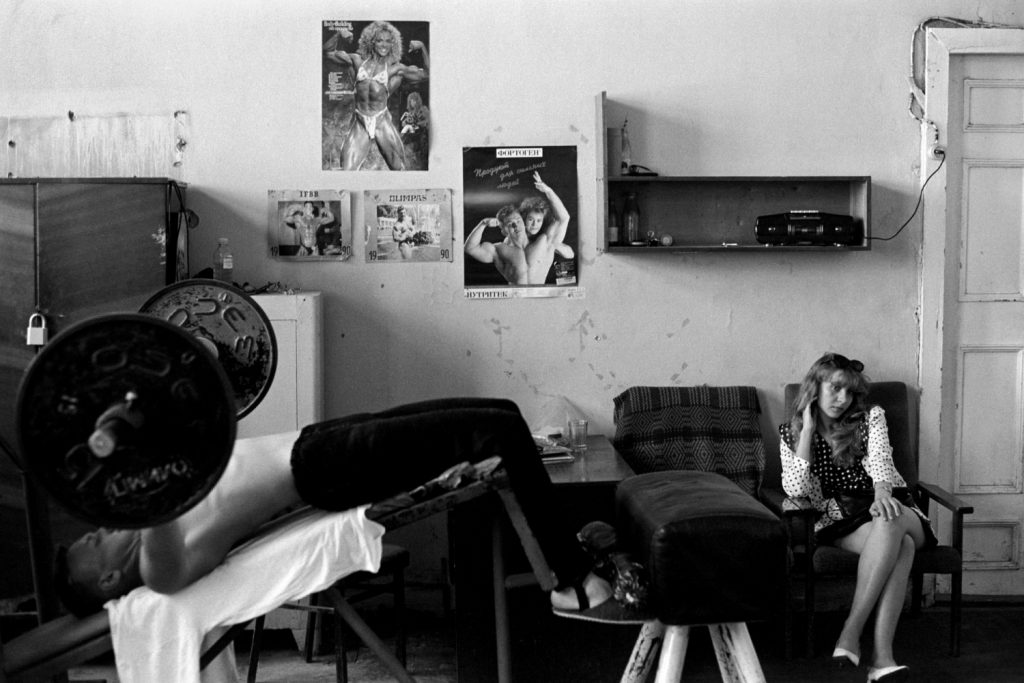
Do you have any particular photos that can describe the series? What’s its story?
A portrait of a girl with her grandmother in the background. This is probably my most famous photo, that I took in the small village of Russian Shuima while traveling through Vyatka in 2003. It had lain in a box of negatives for a long time and was forgotten.
But one day I came across this image and decided to print it. In the print, the photograph came to life. I wonder: « Why is the image of this girl so fascinating? » The expression of the eyes, the pose, the hands tell us about life, childhood, old age, and something more that we cannot explain in words. But all this sinks deep and remains in us. Later this photo became the cover of my first book « Vyatka ».

You published a book about your series, is that for you the conclusion to this project? At what moment did you say you had enough to close the series? What is next for you?
After the book is published, you think that this is a fat full stop, and you need to deal with some other topic. But the reality is different. I want to go back to the places and to the characters of my series again and again. I don’t know why this is happening. Perhaps I have a great passion for capturing how this world is changing around me.
And for next I paused for a moment. I have a big project on the Russian North, and I really want to continue working on it. But for now, it is time to analyze the work that has already been done. And there is one phrase: If you want to make God laugh, tell Him about your plans. I don’t want to make him laugh.
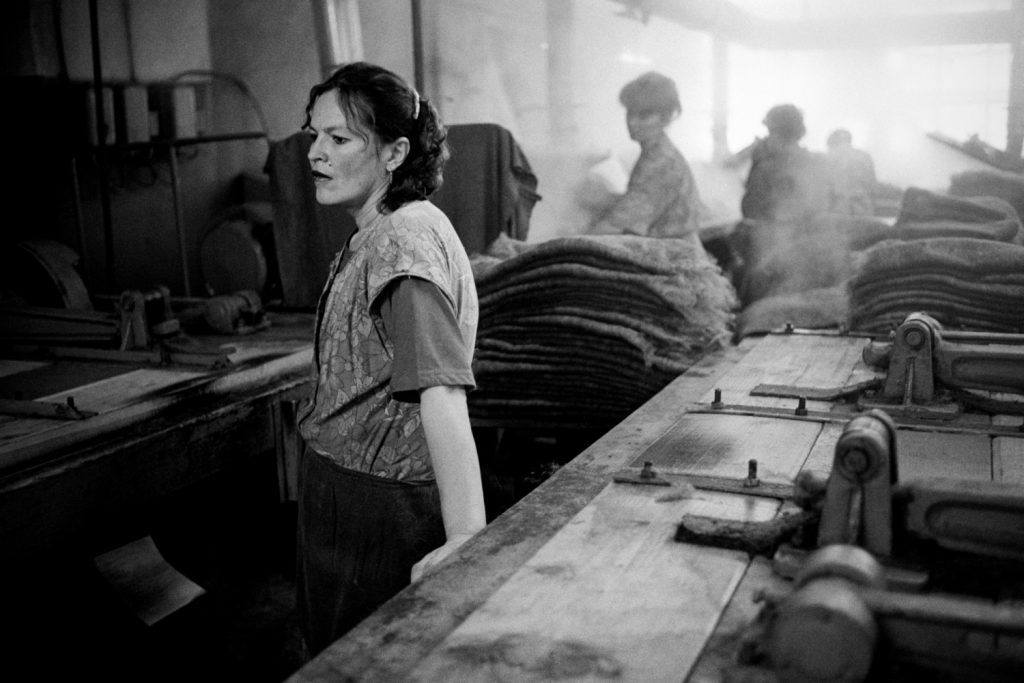

Your top 5 photobooks?
– Henri-Cartier Bresson- « A propos de Paris » Schirmer/Mosel, 1994
-« Robert Frank in America », Steidl, 2014
– « Sergey Lobovikov- The Russian master of art photography » 1995
– « Exposure Mary Elen Mark », Phaidon, 2006
– « Departure Lounge » Jason Eskenazi, 2019
Interview by Valentine Zeler
Photographer’s Links: Website – Instagram
Photobook « Vyatka » published by Treemedia


